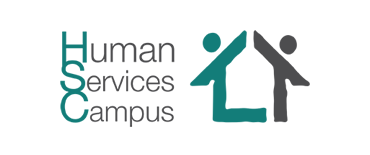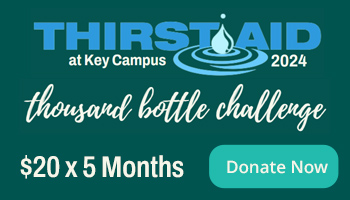Be Like Mike
Be Like Mike
Suggestions for Combating Homelessness from the Front Lines
COVID-19 is still with us, and that’s an ever-present factor in our day-to-day operations at the Human Services Campus, even with minimal positive cases and continuing vaccinations. We received permission from the Arizona Department of Public Health to add some indoor seating, reducing the distance between people from 6 feet to 3.
We’re working on safely increasing shelter capacity as we plan ahead for the expiration of funding for an isolation hotel, a safe outdoor space and bridge housing hotels. We continue advocating for jurisdictions to coordinate their American Rescue Plan funding so that we actually make systems change and use this once-in-a-lifetime funding opportunity as we move out of our once-in-a-lifetime pandemic.
My social experiment with greeting people with a fist bump or hug seems to be generally well-received. One individual this week reminded me of the Dr. Spencer Reid character on “Criminal Minds,” who also does not shake hands. A quick Google search finds that Dr. Reid says, “The number of pathogens passed during a handshake is staggering. It’s actually safer to kiss.”
Indeed. I’m sticking with fist bumps and hugs.
The weather forecast is telling us of the excessive heat warning, which means high temperatures will range from 108 to 118 degrees already in June.
We have hundreds of unsheltered, unhoused individuals near our campus, not because they don’t want shelter, but because we have no vacant shelter beds in our community. Respite via shade, misting systems, bottled water and ice packs will alleviate some heat effects. And I am already concerned about the safety of our clients who will sleep outdoors.
Heat kills.
Want to help? Check on your neighbors, particularly the older adults who don’t leave their homes and apartments. Ask the person you see on the street, at bus stops if they need water; carry bottles of water with you in your vehicle. Work with the faith community to open synagogues, churches and halls for overnight shelter. Call your council person and ask them to use city spaces as temporary shelter.
Want to write a check instead? You can support nonprofit organizations wherever you live. Use Google to search for organizations that serve people experiencing homelessness. Look in your own neighborhood. Call or email and ask what they need. Restrain yourself from assuming you know what the organizations or the clients need. We can tell you, if you ask.
Want to honor our local champion, Mike McQuaid? We have officially launched the Mike McQuaid Legacy Fund to raise $25 million — we are nearly halfway to our goal. The funding will accelerate progress on key objectives that we called “Campus Version 2.0” in conversation with Mike before he passed.
Mike understood and advocated for all strategies that prevent and reduce homelessness. He believed that ending homelessness is possible. He would probably be shaking his head today that our local communities are not figuring out how to coordinate this amazing one-time funding.
He would be making calls. I would be asking him how we could shift the conversation to frame housing as an infrastructure need. It’s been on my mind that communities align and coordinate and problem-solve together on water, transportation and utilities.
Yet they state that “homelessness is different,” or “it’s too hard to coordinate,” or “not all strategies work in my community.”
Housing is necessary to live. Transportation, water, jobs: None of it matters if you have no place to live. Today I would be talking to Mike instead of keeping it in my head or writing it here, telling him that it is ridiculous to think that neighboring cities (26 in Maricopa County) have to plan differently when it comes to roofs over heads, while they “share” water, utility lines and public transportation.
No, it doesn’t have to look exactly the same everywhere. And if the stakeholders involved in water planning can do it, we can do it for housing and resolving homelessness. And by “do it,” I mean put down the geographical boundary of a city or town and look at the boundary of the region.
Leave the ego at the door and sit down and figure it out.
Yes, I’m a bit fired up.
While we offer water and shade, there’s consolation that maybe tomorrow the 75-year-old man using a scooter will be able to access a shelter bed, and we will continue to virtually beg elected officials, jurisdictional leaders and business leaders to work together to move away from stating the reasons why something can’t happen.
Our campus is open again for small group tours. If you want to create urgency, invite people to walk 13 acres with me in the middle of any day next week.
I will give them a bottle of water.
Meanwhile, love your peeps. Wash your hands. Share (except your germs). Be anti-racist. Listen first to seek to understand. Dream big and act. Be like Mike.
About the Human Services Campus
Founded in 2005, the Human Services Campus is a collaborative force of partner organizations united on one campus to end homelessness. Located just west of downtown Phoenix, 16 independent agencies on the Campus see nearly 1,000 individuals every day, offering a holistic range of client services including: reunification with family and friends; mental, physical and dental health; shelter; employment; meals; legal services and housing. Having all of these resources in one location with intra-agency communications makes it more feasible to provide a customized engagement for each client to help end their homelessness. For more information, visit www.hsc-az.org.



